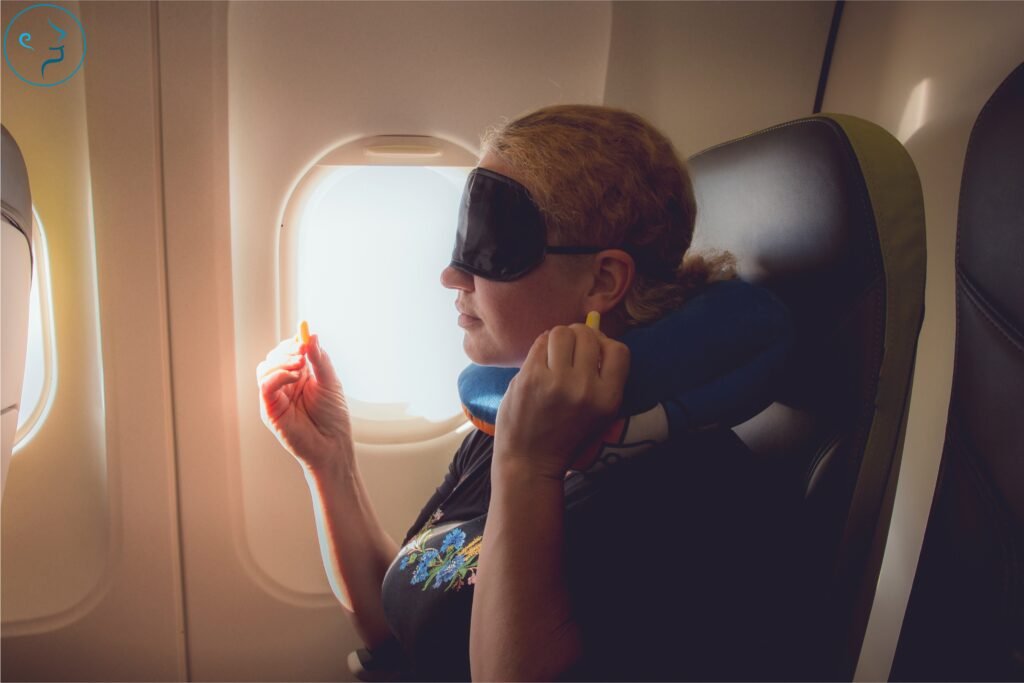
Got Ear Pain After a Flight? Here’s Why It Happens and How to Soothe It Fast!”
Many travelers experience ear pain or discomfort during and after flights—a condition commonly known as airplane ear. This sensation can range from mild pressure and fullness to sharp pain, affecting both adults and children. At ENT Clinic of Excellence, one of the best ENT clinics in Dubai, we understand how important comfortable travel is. That’s why we’re here to explain what causes airplane ear and share effective tips to relieve your ear pain during flights.
Why Does Ear Pain Occur on Flights?
Ear pain during air travel primarily results from rapid changes in cabin pressure. Normally, your ears equalize pressure through the eustachian tube, a small passage connecting the middle ear to the back of your nose. During altitude changes, especially takeoff and landing, this tube may not adjust quickly enough, causing pressure imbalance known as ear barotrauma.
Common causes of airplane ear include:
- Altitude Changes: Rapid ascent and descent cause pressure differences between the middle ear and external environment.
- Nasal Congestion: Colds, allergies, or sinus infections block the eustachian tubes, making pressure equalization difficult.
- Ear Infections: Swelling or fluid buildup can worsen pressure problems.
- Children’s Smaller Eustachian Tubes: Kids are more vulnerable due to underdeveloped tubes.
Quick Relief Tips for Ear Pain During or After Flights
If you experience ear pain during flights in Dubai, try these easy and effective methods to reduce discomfort:
- Swallow, Yawn, or Chew Gum
These actions stimulate muscles that open the eustachian tubes, helping balance ear pressure. - Use the Valsalva Maneuver
Gently pinch your nose, close your mouth, and blow softly to equalize ear pressure. Avoid blowing forcefully to prevent damage. - Stay Hydrated
Drink plenty of water during your flight to keep your mucous membranes moist and functional. - Avoid Sleeping During Takeoff and Landing
Being awake allows you to perform pressure-relief techniques at critical moments. - Use Nasal Decongestant Drops or Sprays
If congested, applying a decongestant 30 minutes before flying can help open nasal passages. - Try Airplane Earplugs
Specialized earplugs regulate pressure changes gradually, reducing the risk of pain.
When Should You See an ENT Specialist in Dubai?
Most cases of airplane ear improve within hours after the flight. However, if you experience persistent ear pain, hearing loss, dizziness, or fluid drainage post-flight, consult an ENT specialist promptly.
At ENT Clinic of Excellence Dubai, our expert ENT consultants provide advanced diagnosis and treatment for airplane ear, ear barotrauma, ear infections, and other ear conditions. We’re dedicated to keeping your ears healthy and pain-free, so you can enjoy stress-free travel every time.
Conclusion
While airplane ear is a common and usually temporary issue, following these tips can help minimize discomfort during your travels. If ear pain or other symptoms persist after flying, trust Dubai’s leading ENT clinic to offer you expert care and relief.
📞 Book Your Appointment Today!
If you’re experiencing ear discomfort or want to learn more about ear health and travel safety, contact ENT Clinic of Excellence, one of the best ENT clinics in Dubai.
Call: 0502480249
Visit: entclinic.ae
Fly comfortably with expert guidance from Dubai’s trusted ENT specialists!